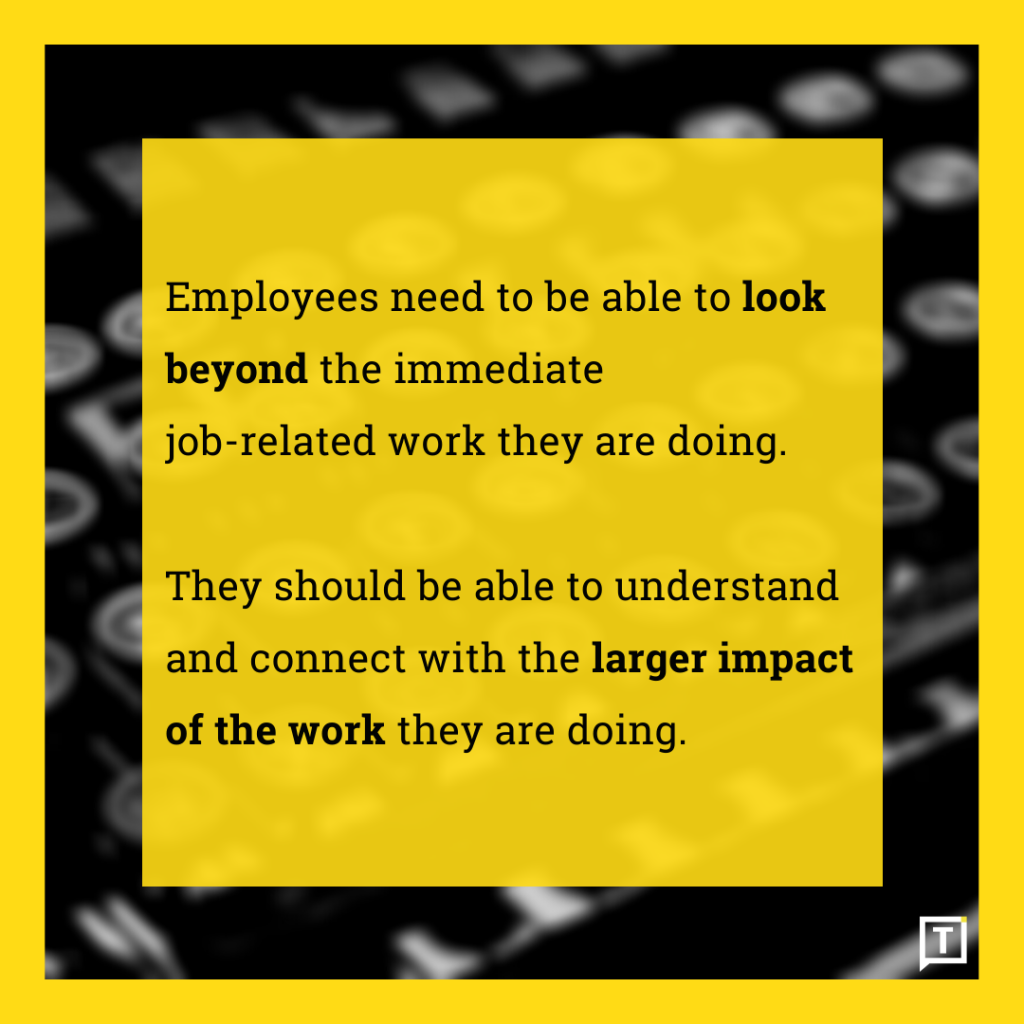Introduction
Whenever we have discussions about a great company culture, Google’s name does pop up. After all, they are famous for their colourful and lively offices, ping-pong tables, slides, snacks, and whatnot.
But are those the only things that define a great company culture?
Here’s the deal: there is no one-fit-for-all solution to defining a great company culture. While Google, or any other tech startup for that matter, might relish in the kind of culture mentioned above, it’s not everyone’s cup of tea. Having a very relaxed set of standards might help some companies. But for some others, it might not.
For example, when I ran my own startup a few years back, we had a culture of no overtime work. Being a small team, everyone had a key to the office. Most evenings we would play Counter-Strike and at times we even played cricket after lunch. While this worked for us, it need not work for another company, say who is into Defence projects.
The company culture is defined to a very large extent not just by the founding team, but also by the scope of the work they do. And because of these reasons alone, no two companies will ever have the exact same culture.
[bctt tweet=”The company culture is defined to a very large extent not just by the founding team, but also by the scope of the work they do. And because of these reasons alone, no two companies will ever have the exact same culture.” username=”TypewriterMedia”]
Why company culture is important
According to a research by Deloitte, 94% of executives and 88% of employees believe that having a distinct corporate culture is important to business success.
[bctt tweet=”According to a research by Deloitte, 94% of executives and 88% of employees believe that having a distinct corporate culture is important to business success.” username=”TypewriterMedia”]
This distinct corporate culture is important in defining the core values, vision and mission of the company. And vice versa.
The company culture is important in not just determining how your employees perceive your company, but also plays an important role in influencing your external brand identity.
[bctt tweet=”The company culture is important in not just determining how your employees perceive your company, but also plays an important role in influencing your external brand identity.” username=”TypewriterMedia”]
So, here we go. 9 key ingredients to building a great company culture.
1. Defining company culture
First and foremost, figure out the core values that you want to be included in your company culture.
Do you want an easy-going and laid back culture? Or do you want a formal and highly structured culture?
Do you want to give your employees the freedom to innovate? Or inculcate an environment where everything is to be done by following a particular set of guidelines?
Figure out the answers to these, and related questions. And once you have, don’t just sit back and wait. Invest your energy, make necessary changes, and implement a management structure where you can fulfill this culture.
Most importantly, you need to lead by example. If you cannot stick to the culture you have put in place, never expect your employees to follow or respect it either.
2. Consistent communication
It obviously doesn’t work if you just define the company culture and then expect everyone to either adapt or implement it.
Ensure you communicate with your employees regularly, especially with examples that portray your company culture.
Is innovation a key aspect? Share with the team how the new intern developed a new software add-on that helps your finance team.
Is fitness a key aspect? Share with the team how the 50-year-old senior manager completed a 10k marathon last week.
And so on. You get the gist.
You can even bring up the core company values in all-staff meetings or performance reviews. There are no limitations to the extent you can go to integrate your company culture with the smallest element of your business.
But always ensure you have a strategy around communicating the same.
3. Convey the bigger picture
Honestly, this is the most difficult part.
While the senior management can easily understand the bigger picture behind the ‘whats’ and ‘whys’ of the company culture, it need not be the case with all your employees.
Your employees need to be able to look beyond the immediate job-related work they are doing. They should be able to understand and connect with the larger impact of the work they are doing.

For example, your software developer should understand that the code he’s writing for your accounting software, helps small businesses save thousands of dollars every year, in time saved maintaining the ledger.
Your HR associate should understand that by training staff in gender identity, she’s helping build a more inclusive culture and remove the stigma associated with certain genders.
If you are able to convey these messages well, your employees will be motivated by the ‘why’ of your business. They will understand that its not just a line of code they are writing, or a poster they are designing. They are an integral brush stroke in a much larger painting.
4. Employee appreciation
Show genuine appreciation to your employees for the hard work they put in.
Did they work over the weekend for deploying an important project? Did they finish a project 2 weeks ahead of time? Did they go over and beyond to meet a customer’s needs?
Congratulate them, appreciate them, and applaud them.
Build a culture where appreciation is a daily routine. The more the employees feel appreciated and respected, the better their morale and the better their commitment to your business goals.
[bctt tweet=”Build a culture where appreciation is a daily routine. The more the employees feel appreciated and respected, the better their morale and the better their commitment to your business goals.” username=”TypewriterMedia”]
5. Work-Life Balance
While some countries (and companies) have an in-built focus on work-life balance, many do not.
Say, for example, my own personal case. I worked in India full-time for 5+ years before I came to Australia. The work culture in both countries is very different. And hence, so is the focus on work-life balance.
In some places, work is a part of life. Whereas, in some others, it is just a part of life. The word ‘just’, makes all the difference.

While every business owner would want that their employees have a founders mentality, in real life that’s difficult to come by. You need to understand that work-life balance is important. Not just for your employees, but for you too.
It is only when people have a clear head, peaceful heart, and a stress-free mind that they will be able to give their best at their job.
The more balance you allow your employees to have in their life, the better output you can expect to receive from them.
6. Care
Make sure you provide arenas/opportunities for your employees to take care of themselves. Both mentally and physically.
It is always good to promote wellness as a part of your culture. Be it free gym memberships, swimming lessons, yoga classes, or even the flexibility to work remotely. Make sure you provide your employees with avenues to encourage self-care.
7. Collaboration
Employees tend to work more collaboratively in companies that have a positive and open work culture.
A positive work culture encourages discussions, facilitates social interaction, and inspires teamwork. And it is a well-known fact that teams that work more collaboratively tend to come up with the best results.
[bctt tweet=”Employees tend to work more collaboratively in companies that have a positive and open work culture. A positive work culture encourages discussions, facilitates social interaction, and inspires teamwork.” username=”TypewriterMedia”]
8. Organizational design
As Entrepreneur.com puts it,
Organizational design is the processes, structure, and hierarchy you put into place that allow you to put your culture into practice.
It’s “how you do things.” This will include your communication, company policies, team building, performance indicators, performance evaluations, division of responsibilities, and even how you schedule, and run, meetings.

For example, does the CEO send out a company-wide email every week? Or only when there is something worth announcing?
Is there a fixed framework to measure employee performance? Or does it vary from department to department?
How often do all-staff meetings occur? How often does the CEO talk to the employees directly?
Your company culture is significantly enhanced if you have a structured design around all aspects of your business. Your organizational design has to clarify authority, responsibility, accountability, and transparency.
9. Lead by example
Irrespective of the fact whether you are the company owner or not. If you are someone in charge of ensuring that the company culture is followed, then you have to lead by example.
If you expect everyone to be punctual but yourself turn up late regularly, then it is obvious that there’s an issue.
If the leaders do not take into the company culture, then it is illogical to expect the employees to do the same. As a leader, you have to hold yourself to at least the same standard as your employees. If not higher.
Want to join our small but awesome community? Just drop in your email below and I’ll buzz you in.
Photo by Pineapple Supply Co. on Unsplash Photo by Austin Distel on Unsplash Infographic vector created by upklyak - www.freepik.com



